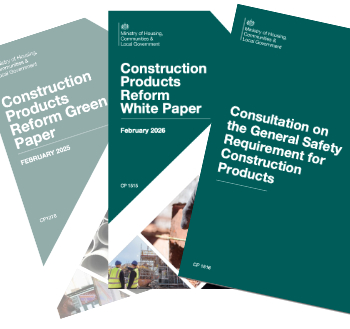Skillsplanner
 SkillsPlanner is a two-year, £1.3m research and development programme aimed at creating a data-powered solution to resolve UK construction skills shortages by better matching of future skills needs and industry capacity to deliver those skills. It was formally launched at the Institution of Civil Engineers in London on 24 February 2016.
SkillsPlanner is a two-year, £1.3m research and development programme aimed at creating a data-powered solution to resolve UK construction skills shortages by better matching of future skills needs and industry capacity to deliver those skills. It was formally launched at the Institution of Civil Engineers in London on 24 February 2016.
It is funded by Innovate UK and its project partners - Ethos, Association of Colleges, Camden, Islington and Westminster councils, GoodPeople, Seme4, Tideway, and University of Plymouth - and is initially focused on the London construction sector with an intention to develop and grow across the UK.
SkillsPlanner will be a live, accessible and user-friendly data platform that aims to make ‘real time’ skills data visible to multiple stakeholders. It will be based on a cutting edge Linked and Open Data platform that can aggregate, integrate and analyse skills data from a variety of sources to provide a valuable ’real time’ picture of the skills landscape, mapping industry demand against current training provision.
The long-term aim is that SkillsPlanner will enable the construction industry, known for its fragmented approach to skills planning, to become more collaborative, connected and efficient. The ambition is to enable the transformation of skills provision to meet employer needs and thus reduce industry skills gaps. Providing a response to the regional recommendations captured within research such as ‘Skills to Build’ (London Chamber of Commerce & Industry/KPMG, 2014), and national ambition such as the National Infrastructure Plan for Skills, the ultimate objectives of SkillsPlanner are that it will:
- Support and inform the development of skills and employment requirements in procurement contracts.
- Allow construction employers to understand the local skills base better and thus benefit resource planning.
- Inform training providers (in designing new training courses and apprenticeship frameworks) to develop demand-led and commercially-viable training programmes that better meet the needs of industry, as well as enabling collaboration between providers.
- Allow councils to more efficiently utilise planning obligations, with a far greater awareness of the reality of skills available and local labour needed.
- Provide job brokerage organisations with far greater visibility as to local skills demand and enable providers to operate more effectively and efficiently.
- Enable schools and education providers to provide more clarity on job opportunities and career pathways within construction at a local level.
- Add value to local employment support schemes by providing information on, and access to, employment and training opportunities at a regional level.
- Enable a greater understanding of diversity within the construction industry and training provision.
Featured articles and news
Scottish parents prioritise construction and apprenticeships
CIOB data released for Scottish Apprenticeship Week shows construction as top potential career path.
From a Green to a White Paper and the proposal of a General Safety Requirement for construction products.
Creativity, conservation and craft at Barley Studio. Book review.
The challenge as PFI agreements come to an end
How construction deals with inherited assets built under long-term contracts.
Skills plan for engineering and building services
Comprehensive industry report highlights persistent skills challenges across the sector.
Choosing the right design team for a D&B Contract
An architect explains the nature and needs of working within this common procurement route.
Statement from the Interim Chief Construction Advisor
Thouria Istephan; Architect and inquiry panel member outlines ongoing work, priorities and next steps.
The 2025 draft NPPF in brief with indicative responses
Local verses National and suitable verses sustainable: Consultation open for just over one week.
Increased vigilance on VAT Domestic Reverse Charge
HMRC bearing down with increasing force on construction consultant says.
Call for greater recognition of professional standards
Chartered bodies representing more than 1.5 million individuals have written to the UK Government.
Cutting carbon, cost and risk in estate management
Lessons from Cardiff Met’s “Halve the Half” initiative.
Inspiring the next generation to fulfil an electrified future
Technical Manager at ECA on the importance of engagement between industry and education.
Repairing historic stone and slate roofs
The need for a code of practice and technical advice note.
Environmental compliance; a checklist for 2026
Legislative changes, policy shifts, phased rollouts, and compliance updates to be aware of.




















